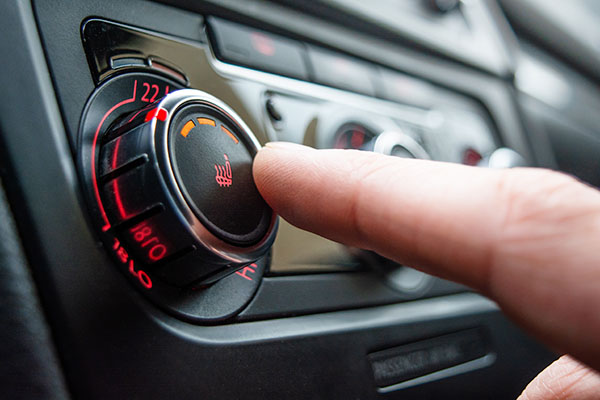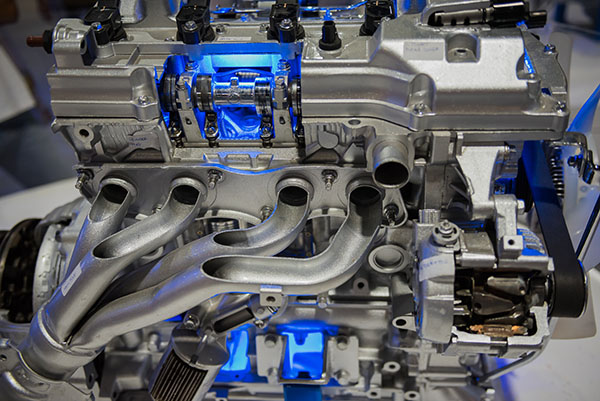Posted on 5/30/2024

Taking your pets on a road trip can be an incredibly rewarding experience, but it requires careful planning and consideration to ensure your comfort and safety. Whether you're embarking on a cross-country adventure or a short weekend getaway, following these practices can make your journey smooth and enjoyable. Preparing Your Pet for the Journey Before hitting the road, prepare your pets for the journey ahead. Start by ensuring they are comfortable with car travel. If they are not accustomed to being in a car, take a few short trips to acclimate them to the experience. Gradually increase the length of these trips to help your pets feel more at ease. Additionally, visit your veterinarian for a check-up. Make sure your pets are up-to-date on vaccinations and discuss any health concerns that may affect travel. It's also wise to ask for a copy of the medical records, especially if you're traveling out of state or planning an extended trip. Another important step is packing ... read more
Posted on 4/29/2024

Are you considering purchasing a vehicle? It's an exciting endeavor but one that requires careful consideration. Amidst the excitement, it's crucial not to overlook the importance of a pre-purchase vehicle inspection. This comprehensive examination safeguards against potential pitfalls, ensuring you make an informed decision and confidently drive away. Understanding the Purpose A pre-purchase vehicle inspection is more than just a formality—it's your opportunity to uncover hidden issues that could cost you dearly down the road. By enlisting the expertise of a qualified mechanic to thoroughly assess the vehicle's condition, you gain invaluable insights into its overall health and potential maintenance needs. Identifying Red Flags During the inspection process, trained professionals meticulously examine every aspect of the vehicle, from its mechanical components to its structural integrity. By identifying ... read more
Posted on 3/29/2024

Driving in wet conditions can present numerous challenges, with one of the most dangerous being hydroplaning. This phenomenon occurs when your vehicle loses traction with the road surface due to a thin layer of water between the tires and the road. Understanding how hydroplaning occurs and knowing how to react can help you stay safe on wet roads. What Is Hydroplaning? Hydroplaning is a phenomenon that occurs when a thin layer of water accumulates between the tires of a vehicle and the road surface, causing a loss of traction and control. This loss of traction can occur when driving at high speeds in wet conditions, especially during heavy rain or when water accumulates on the road surface faster than it can drain away. As the tires encounter the water, they may lose contact with the road, leading to a feeling of floating or sliding. Several factors can contribute to hydro ... read more
Posted on 3/21/2024

Your sense of smell can be a powerful tool for detecting potential issues with your car before they escalate into costly repairs or safety hazards. Different car smells can indicate various problems, from minor issues to more significant mechanical failures. Let's explore some common car smells and what they might mean for your vehicle's health. 1. Sweet or Syrupy Odor A sweet or syrupy odor in your car could indicate a coolant leak. Coolant, also known as antifreeze, circulates through the engine to regulate temperature. If you detect a sweet smell and notice coolant pooling under your car or steam emanating from the engine bay, it's essential to address the leak promptly to prevent overheating and engine damage. 2. Burnt Rubber Smell A burnt rubber smell could indicate several potential issues, including overheated brakes, slipping drive belts, or melting hoses. If you notice a burnt rubber odor while driving, pull over safely and ins ... read more
Posted on 1/27/2024
.jpeg)
What does your car's electrical system do? It's the very heartbeat that keeps it alive and running. This intricate maze of wires and components is the main reason behind your vehicle's smooth operation. Below, we will take you on an enlightening journey to unravel the mysteries of this vital system, so don't skip out. Battery, Alternator, and Starter Our adventure begins with the core components of your car's electrical system: the battery, alternator, and starter. The battery, a reservoir of energy, quietly and reliably powering your car's electrical needs. The alternator is a diligent worker, tirelessly charging the battery and keeping the electrical current flowing. And the starter? It's the spark that ignites the eng ... read more
Posted on 12/3/2023

As winter's chill settles in, one of the most appreciated features in our cars becomes the heating system. But have you ever wondered how your car manages to keep you warm and cozy in the frosty months? Read on to learn more about your automobile’s heating system and what role it plays in keeping you and your loved ones comfortable throughout winter. The Science of Car Heating Your car's heating system operates on a straightforward principle: it uses the engine's excess heat to warm the cabin. Here's how it works from start to finish: Heat Generation: The engine generates heat as it runs. A portion of this heat is used to warm up your car. Heat Transfer: Coolant, a mixture of water and antifreeze, circulates through the engine, absorbing heat. Radiator: The heated coolant flows through a radiator, dissi ... read more
Posted on 11/28/2023

We all know how unpredictable the roads can be, which is why road safety is more important than ever. Accidents can happen in an instant, and taking precautions can make all the difference. Let's make sure we're all doing our part to stay safe on the roads and protect ourselves and those around us. Defensive Driving Techniques One of the fundamental aspects of staying safe on the road is practicing defensive driving. This involves maintaining a safe following distance, being aware of blind spots, and anticipating the actions of other drivers. By adopting these techniques, drivers can significantly reduce the risk of collisions. Vehicle Maintenance Regular vehicle maintenance is crucial for road safety. Simple tasks like checking the brakes, ensuring tire safety, and scheduling regular check-ups can go a long way in preventing accidents cau ... read more
Posted on 10/10/2023

We often take our car's ABS (Anti-lock Braking System) for granted. It's that unsung hero that quietly keeps us safe when we hit the brakes hard. But to ensure it continues to perform its life-saving duties, a little care is in order. Understanding Your ABS Before we get into maintenance, let's briefly understand how your ABS works. This system prevents your wheels from locking up during heavy braking, allowing you to maintain control and steer the vehicle. It does this by pulsing the brakes rapidly, much faster than humanly possible. So, if your ABS kicks in, you'll feel a pulsing sensation in the brake pedal – that's your ABS doing its job. Routine Checks and Cleaning Your ABS system benefits from regular visual inspections. Check for any visible damage to the wheel speed sensors, which are responsible for detec ... read more
Posted on 9/29/2023

Your vehicle is a marvel of engineering, and beneath its sleek exterior lies a network of sensors that silently work to keep everything running smoothly. Get ready to uncover their function and the ways they can be kept working for as long as possible. 1. The Oxygen Sensor (O2 Sensor) The oxygen sensor, often referred to as the O2 sensor, is your vehicle's environmental conscience. It monitors the amount of oxygen in your exhaust gasses and helps the engine control unit (ECU) adjust the air-fuel mixture for optimal combustion. In simple terms, it ensures your engine is running efficiently and not producing excessive emissions. How to Maintain It: Make sure that wires are correctly connected and working. Avoid using leaded gasoline, as it can damage the O2 sensor. Keep your engine well-tuned to prevent running too rich or too lean, which can affect the sensor's ... read more
Posted on 8/30/2023

Picture this: you're nestled in the cozy cocoon of your car, ready to embark on a journey. You press buttons with eager anticipation, expecting your vehicle to respond with its usual symphony of sounds and motions. But then, a perplexing silence ensues – your car's buttons seem to have lost their voice. Before frustration takes the wheel, let's dive into the intriguing world of automotive electronics and explore the reasons why you might find yourself clicking buttons in your car, yet nothing seems to be happening. The Digital Command Center - The Simple Button In the modern automotive landscape, buttons aren't just ordinary fixtures; they're gateways to a world of technology. From adjusting the climate control to selecting your favorite radio station, these buttons communicate your desires to a complex network of sensors, circuits, and modules. However, as with any intricate system, glitches can occasionally occur, leaving you in a state of ... read more